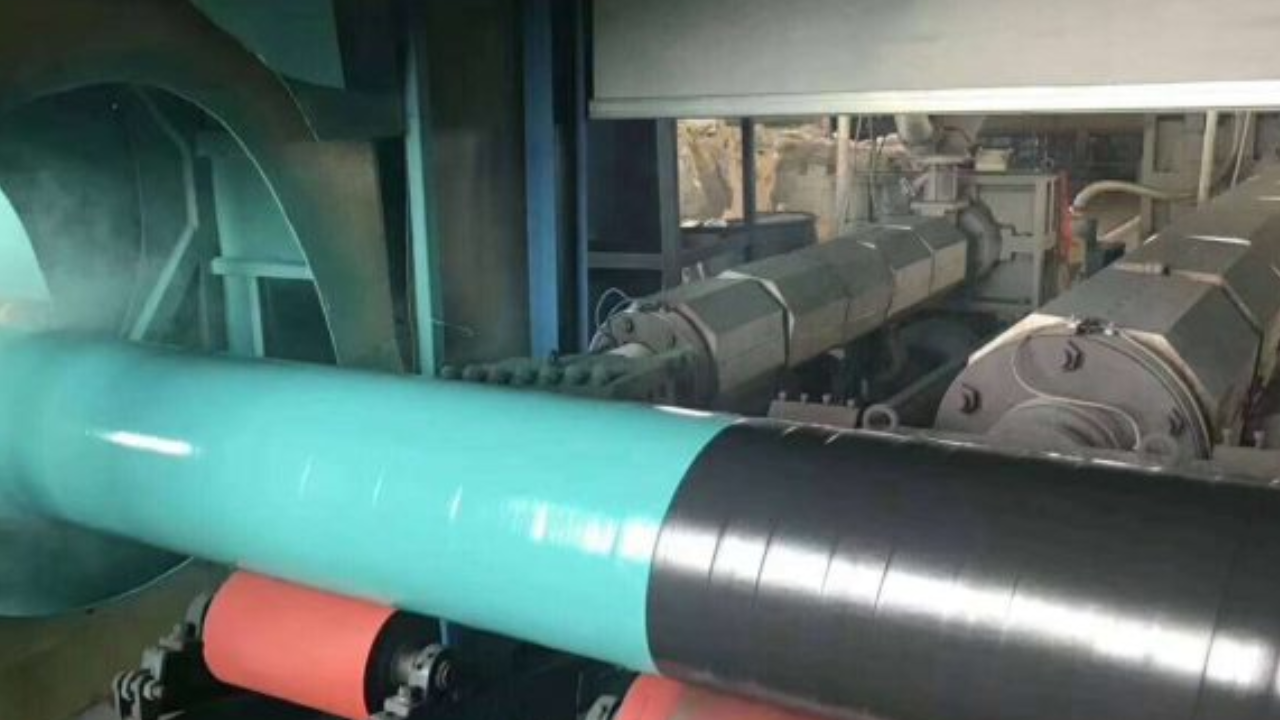Steel pipes that have had a protective covering applied to them to increase their resilience to corrosion and longevity are known as coated steel pipes. Numerous techniques, including fusion-bonded epoxy (FBE), polyethylene (PE), and polypropylene (PP) coatings, can be used to apply the coating. These coatings offer a barrier that lowers the chance of rust and corrosion by keeping the steel substrate away from corrosive materials.
Industries including oil and gas, water and wastewater, chemical processing, and power production frequently use coated steel pipe. Additionally, they are employed in pipeline, tunnel, and bridge construction projects. Improved corrosion resistance, longer lifetime, higher durability, and lower maintenance costs are just a few benefits of coated steel pipes.
Advantages Do Coated Pipe Offer
When compared to uncoated pipes, coated pipes provide more benefits such as better corrosion resistance, longer lifetime, and improved durability. The numerous advantages of employing coated pipes in various sectors will be covered in this essay.
Enhanced Corrosion Resistance
An important benefit of coated pipes is their increased ability to withstand corrosion. Coatings that offer a protective barrier to shield the steel substrate from corrosive chemicals include polyethylene (PE), polypropylene (PP), and fusion-bonded epoxy (FBE). This aids in preventing corrosion and rust, which can erode the pipe and cause leaks and failures.
Increased Durability
Because the coating adds an extra layer of defense against deterioration, coated pipes are more resilient than uncoated ones. Because of this, they are perfect for usage with abrasive materials and high-temperature conditions. Additionally, the coating helps to lower the possibility of damage occurring during handling and installation, extending the lifespan of the pipes.
Extended Resilience
Coated pipes have a longer lifespan because of their better resilience and increased resistance to corrosion. The requirement for upkeep and repairs is decreased because coated pipes can endure for many years before needing to be replaced. Because of this, they are an affordable choice for sectors that need piping solutions that are dependable and durable.
Lower Maintenance Costs
Because the coating helps shield the steel substrate from wear and corrosion, coated pipes require less maintenance than uncoated pipes. Time and money are saved as a result of the decreased requirement for routine inspections and repairs. Additionally, because the coating’s smooth surface inhibits the accumulation of debris and other impurities, coated pipes require less cleaning and upkeep.
Enhanced Flow Efficiency
The smoother surface of coated pipes compared to bare pipes aids in enhancing flow efficiency. As a result, there is less chance of obstructions and pressure decreases, improving the efficiency of fluid transportation through the pipes. Enhancing flow efficiency not only lowers energy usage but also uses less energy to pump fluids through the pipes.
Environmental Benefits
Energy consumption and greenhouse gas emissions are two of the many environmental advantages of coated pipes. The increased flow efficiency of coated pipes contributes to a decrease in the energy needed to move fluids, lowering the operation’s carbon footprint. Further lessening the environmental impact of coated pipes is their long lifespan, which requires fewer resources to manufacture and install new pipes.
Versatility
Coated pipes can be used for a multitude of purposes because they come in a broad range of materials and coatings. They can be applied to chemical processing, electricity generation, water and wastewater treatment, and oil and gas industries. Additionally, coated pipes are utilized in pipeline, tunnel, and bridge construction projects. Coated pipes are a popular option for a wide range of industries due to their versatility.
Safety
Several factors, including coated pipes, enhance safety. Reducing the likelihood of leaks, bursts, and accidents, coatings’ corrosion prevention contributes to the structural integrity of pipelines. Further improving safety in sectors where fire threats are a concern is the ability of some coatings to withstand fire.
Final Thoughts
Enhanced corrosion resistance, longer lifetime, and higher durability are just a few benefits that coated pipes have over uncoated pipes. They also offer versatility, lower maintenance costs, better flow efficiency, and environmental advantages. For enterprises that need dependable and long-lasting pipeline solutions, coated pipes are an affordable and dependable choice because of these benefits.









